 A little bedtime reading about bed linen.
A little bedtime reading about bed linen.
Enhance your sleep with Belledorm's bed linen blog. From allergy-friendly options to the luxury of Egyptian vs. regular cotton, find sheets for warmth and summer nights. Upgrade your comfort with expert insights and premium bed linen.
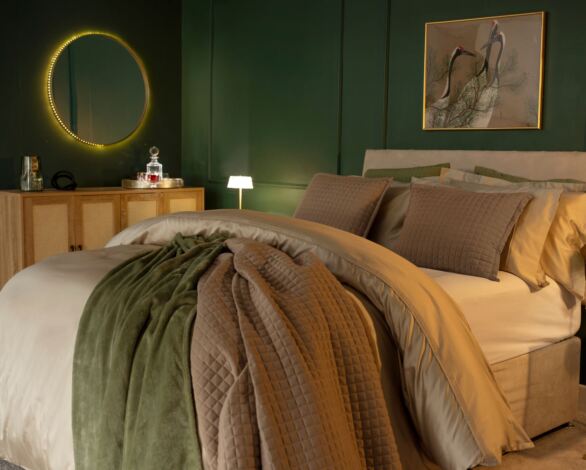 How to replicate hotel bedding at home
2 Feb 2026
How to replicate hotel bedding at home
2 Feb 2026
Slipping into a luxury hotel bed is one of life’s little pleasures. But why wait until your next holiday to experience it? In this guide, we show you how to recreate the look and feel of hotel bedding at home.
 Creating a Sleep-Friendly Sanctuary: Why Your Sleep Environment Matters
26 Jan 2026
Creating a Sleep-Friendly Sanctuary: Why Your Sleep Environment Matters
26 Jan 2026
Your bedroom environment directly influences sleep quality through colour, texture, and design. Soft blues and greens lower heart rate and promote calm, whilst quality natural fibres like Egyptian cotton provide breathability and comfort. Layered bedding allows temperature regulation throughout the night. Strategic colour placement, minimal clutter, and tactile comfort create a sanctuary that signals safety to your nervous system, enabling deeper, more restorative sleep.
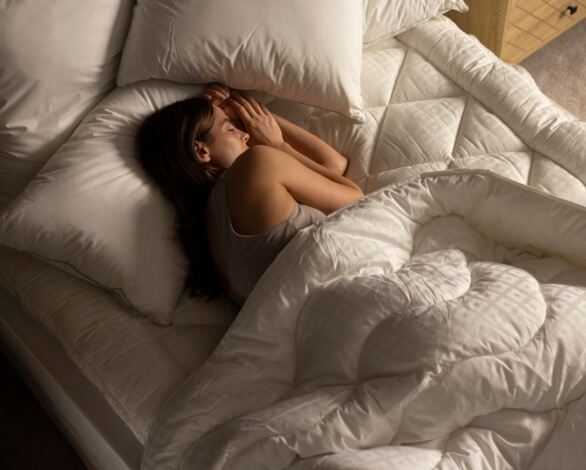 How your choice of pillow can help you get more sleep
22 Jan 2026
How your choice of pillow can help you get more sleep
22 Jan 2026
The right pillow maintains neutral spine alignment and significantly improves sleep quality. Back sleepers need medium-loft memory foam; side sleepers require firmer, thicker support. Hot sleepers benefit from breathable natural fabrics with 200-300 thread count. Anti-snore pillows offer firm cervical support to improve airflow. Age-specific options, from flat toddler pillows to orthopaedic designs for seniors, ensure proper support throughout life. Upgrading your pillow is a transformative investment in long-term health and restful sleep.
 Beat Blue Monday from your bed: 6 uplifting bedding ideas
19 Jan 2026
Beat Blue Monday from your bed: 6 uplifting bedding ideas
19 Jan 2026
Transform your winter bedroom into a wellness sanctuary by choosing brushed cotton for instant warmth or Egyptian cotton for stable temperature control. Introduce warm colours like coral, blush pink, and copper to counter seasonal mood dips. Layer textures with throws and cushions, and consider divan base wraps for an affordable luxury upgrade. Quality bedding directly improves sleep and brightens winter days.
 Best Sheets for Someone Who is Always Cold
23 Dec 2025
Best Sheets for Someone Who is Always Cold
23 Dec 2025
If you’re someone who always feels cold at night, the right bed sheets can make a big difference to your comfort and sleep quality. This guide explores the warmest sheet materials, including brushed cotton, flannel, fleece, bamboo, linen, and silk, explaining how fabric type, weave, and layering affect heat retention. You’ll also learn what to look for when buying sheets for cold sleepers and how to build a cosy bedding setup that keeps you warm without overheating.
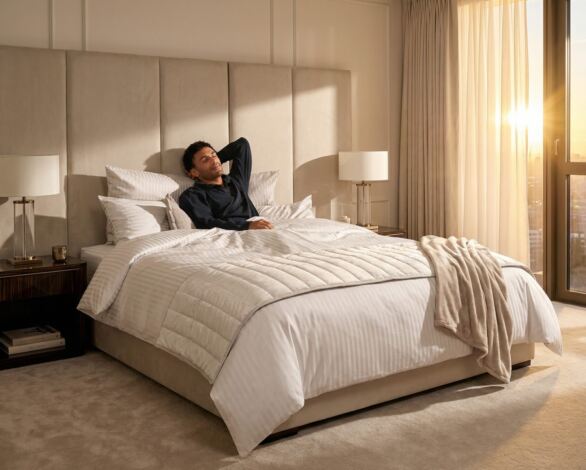 What Are the Benefits of Egyptian Cotton Bed Linen?
10 Dec 2025
What Are the Benefits of Egyptian Cotton Bed Linen?
10 Dec 2025
Egyptian cotton is prized for its softness, strength, and breathability. Discover why this luxury fabric is worth the investment and how it can improve your sleep comfort year after year.
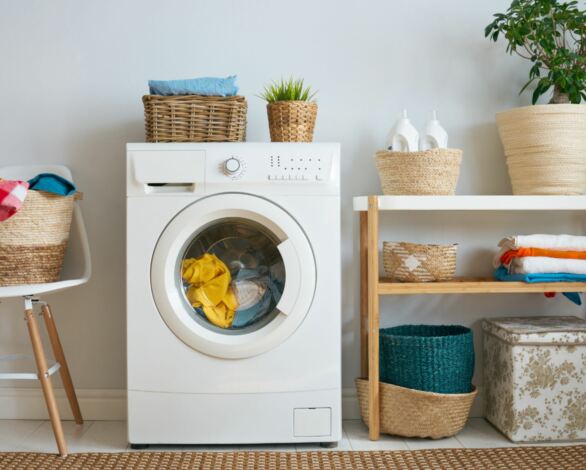 How often should you wash your bed linen?
26 Nov 2025
How often should you wash your bed linen?
26 Nov 2025
Regularly washing your bed linen keeps your sleep environment fresh, hygienic, and comfortable. From how often to wash sheets and pillowcases to tips for caring for different fabrics, this guide explains everything you need to know to keep your bedding in its best condition..
 What Is Luxury Bed Linen?
19 Nov 2025
What Is Luxury Bed Linen?
19 Nov 2025
Luxury bed linen is all about premium materials, expert craftsmanship, and long-lasting comfort. From Egyptian cotton to silk and bamboo, this guide explains what makes bedding truly luxurious and how to choose the best option for your home.
 How To Stop Bed Sheets Coming Off
12 Nov 2025
How To Stop Bed Sheets Coming Off
12 Nov 2025
Tired of waking up to fitted sheets that won’t stay put? From choosing the right size to using clever accessories, this guide explains how to keep your bed sheets secure for a smooth, comfortable night’s sleep.
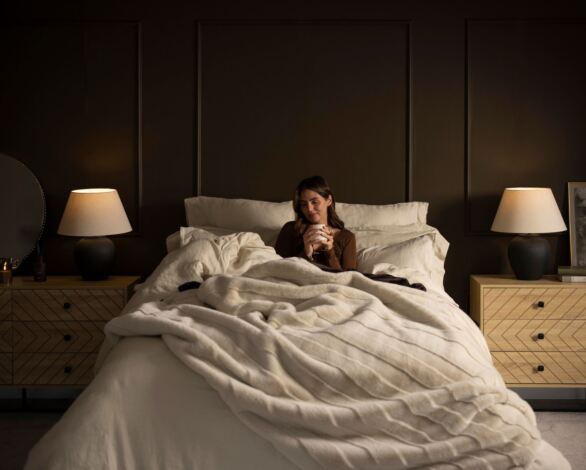 How To Layer Bedding For Winter
3 Nov 2025
How To Layer Bedding For Winter
3 Nov 2025
Mastering the art of layering your bedding is the secret to staying warm, stylish, and comfortable all winter long. Discover how to combine textures, fabrics, and layers for the ultimate cosy sleep setup.
 Top Tips for Staying Warm in Bed This Winter: Expert Advice from The Sleep Charity
22 Oct 2025
Top Tips for Staying Warm in Bed This Winter: Expert Advice from The Sleep Charity
22 Oct 2025
Discover how to stay snug and save on energy bills this winter with The Sleep Charity’s expert advice. From the best bedding materials like brushed cotton and wool to smart layering and tog ratings, learn how to create a cosy, energy-efficient sleep environment for the colder months.
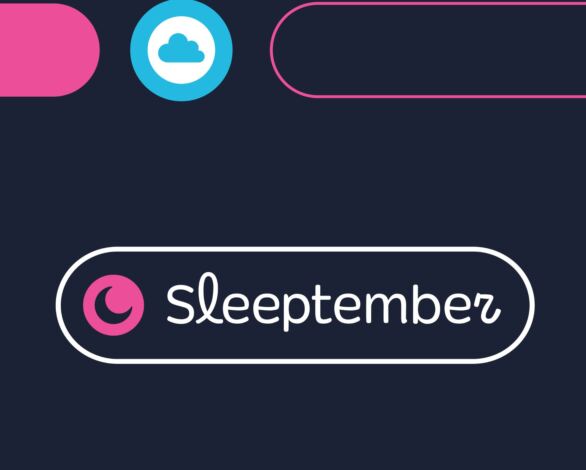 Sleeptember: Better Sleep Starts in the Bed
1 Sep 2025
Sleeptember: Better Sleep Starts in the Bed
1 Sep 2025
This Sleeptember, Belledorm joins forces with The Sleep Charity to highlight the importance of beds and bedding in achieving quality sleep. From thread count myths to layering tips, here’s how to create your perfect sleep sanctuary.
 What are the different types of cotton bed linen?
21 Aug 2025
What are the different types of cotton bed linen?
21 Aug 2025
From Egyptian luxury to budget-friendly blends, the type of cotton you choose has a big impact on comfort, durability, and cost. Here’s everything you need to know to find the right cotton for your bed linen.
 What Bed Linen To Buy For My Child Going To University?
18 Jul 2025
What Bed Linen To Buy For My Child Going To University?
18 Jul 2025
Heading off to university is exciting, but comfort is key when settling into student life. The right bedding helps your child sleep better, study with focus, and feel at home in their new space. This guide covers everything from duvets to mattress toppers, plus the best fabrics for practicality and value.
 What is the Best Cheap Bed Linen?
4 Jul 2025
What is the Best Cheap Bed Linen?
4 Jul 2025
Finding quality bed linen on a budget doesn’t mean compromising on comfort. From cotton percale to bamboo, this guide explores the best affordable fabrics and tips to help you get the most out of your bedding.




